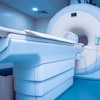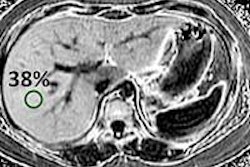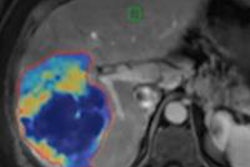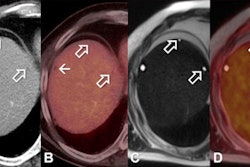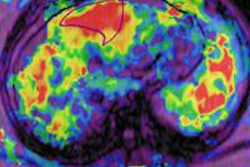Georgia researchers have developed a new class of MRI protein-based contrast agents (PRCAs) that they believe will help detect early liver cancer and other liver diseases.
The group determined that its ProCA32 contrast agent can be used to detect cancerous liver tumors at an early stage with high sensitivity. The new agents can also improve MR imaging of multiple organs, such as the kidney and blood vessels, in addition to the liver and tumors, concluded senior author Jenny Yang, PhD, from Georgia State University, along with colleagues from several other institutions.
Study results were published online May 13 in Proceedings of the National Academy of Sciences.
Liver cancers associated with high mortality are often diagnosed late because they cannot reliably be detected at sizes smaller than 1 cm, Yang said in a press release. However, using ProCA32, the researchers were able to visualize liver tumors smaller than 0.25 mm. In addition, ProCA32 is at least 40 times more sensitive than currently used agents, which are hampered by uncontrolled blood circulation time and low sensitivity and specificity, the researchers reported.
"Our new agents can obtain both positive and negative contrast images within one application, providing double the accuracy and confidence of locating cancerous tumors," Yang said.
ProCA32 could also be useful for diagnosing other malignancies, which could help the development of targeted treatment and monitoring tumor burden, she added.

